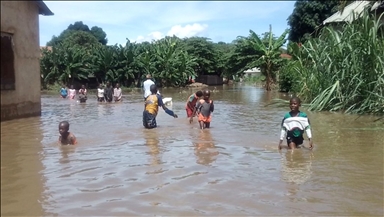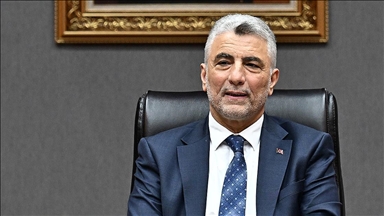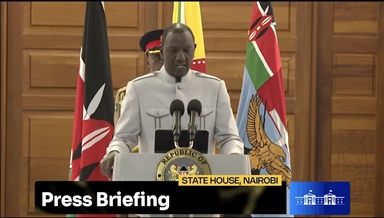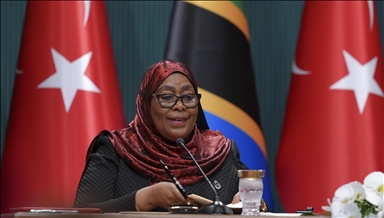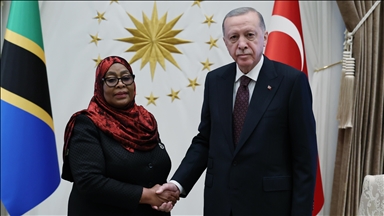OPINION - The struggle for East Africa’s oil
Tussles between neighboring states and commercial stakeholders creating uncertainty over drilling, pipelines and exports
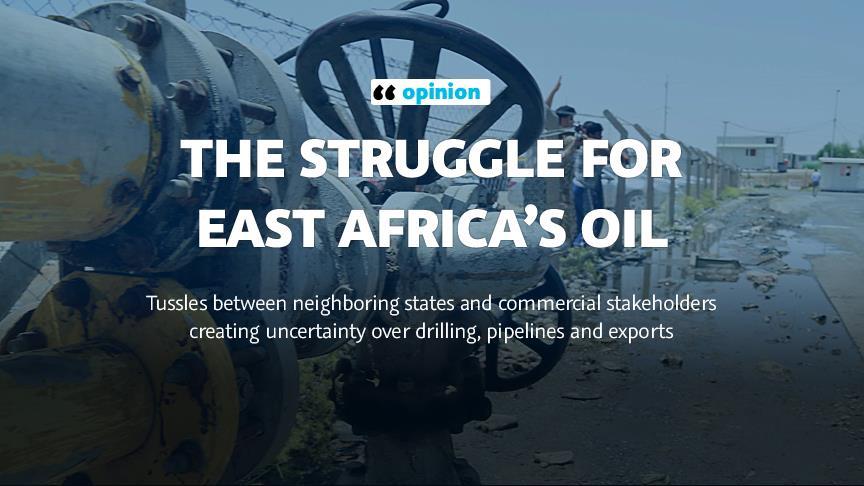
By Brendon J. Cannon
The writer is Assistant Professor at Khalifa University’s Institute of International and Civil Security (IICS), Abu Dhabi, UAE
ABU DHABI, United Arab Emirates
The struggle over East Africa’s oil and gas exports is heating up. At stake are potentially billions of dollars in revenue and control of strategic pipelines.
Oil was discovered in commercial quantities in Uganda and Kenya fairly recently and both countries wish to become oil exporters. Tanzania, which has significant oil and gas reserves, also wants pipelines to connect its oil with ports on the Indian Ocean.
Yet a tussle pitting neighboring states and members of the East African Community (EAC) as well as commercial stakeholders against each other has conspired to create uncertainty over oil drilling, pipelines and export options in East Africa at a time of record-low oil prices.
UKCOP
In order to bring East Africa’s oil to the world, the Uganda-Kenya Crude Oil Pipeline (UKCOP) was announced soon after Kenya’s discovery of oil in late 2012. The pipeline was to transport Uganda’s and Kenya’s oil across central Uganda and northern Kenya to the Indian Ocean port of Lamu. A spur to South Sudan’s huge oil reserves was also planned. The UKCOP would have made three East African states sizeable oil exporters and earned major revenue for
Yet almost as soon as plans were announced in mid-2015 in Nairobi to build the UKCOP across northern rather than southern Kenya, concerns were voiced in Kampala as well as from Big Oil players, citing security, terrain and cost concerns.
One year later, the UKCOP was shelved and a Uganda-Tanzania pipeline deal was inked. This will see Uganda’s oil flow not through Kenya, but through Tanzania to its port of Tanga. This means the pipeline spur to South Sudan is on hold and that Kenya must either transport its oil by road or build its own pipeline.
East Africa’s oil struggle
Though security in northern Kenya -- especially the threat of terrorism from the Somalia-based al-Shabaab terrorist group -- was likely a factor in stopping the UKCOP, I argue that a mix of domestic, regional and international factors were equally important.
First, a new president showed a keen interest in expanding Tanzania’s influence and power through exporting East Africa’s oil and gas.
Second, intent on gaining a greater share of oil revenue and reducing reliance on Kenya, Uganda’s president proved a mercurial negotiator.
Third, a major oil company pressured Kampala to reject the UKCOP in order to cement their stake in Uganda’s oil production.
Lastly, Kenya failed to defend the UKCOP effectively.
Tanzanian President John Magufuli, elected in 2015, immediately attempted to expand Tanzania’s influence at the expense of its more economically powerful neighbor and rival, Kenya.
Magufuli exploited Ugandan President Yoweri Museveni’s concerns over Kenyan insecurity, land acquisition and funding for the UKCOP, sending businesspeople and diplomats to Kampala to lobby for the Tanzania pipeline.
In contrast to reported problems in Kenya, Magufuli promised easy land acquisition in Tanzania and a fully-operational Tanga Port -- even though Tanga reportedly needs dredging, is underutilized and possesses
Museveni, Uganda’s president since 1986, takes a highly personal approach to power, politics and Uganda’s relationship with other states. While Museveni’s decades-long relationship with Kenya has generally been pragmatic, anxiety exists on account of land-locked Uganda being reliant on Kenya for most imports and exports.
Kenya remains Uganda’s biggest trading partner in the region and the majority of Uganda’s supplies come overland from Kenya’s Mombasa port. If the roads are impassable or Kenya
Added to the mix is French multinational oil and gas company Total S.A., in the form of its subsidiary Total E&P Uganda.
It was always critical of the UKCOP, citing security and cost concerns, which contradicted the generally favorable reception of other oil stakeholders operating in East Africa. Indeed, Total floated the idea of the Tanga route in mid-2015, reportedly in order to maintain its position of privilege in the development and export of Uganda’s significant oil reserves.
Total informed Museveni that it would assist in the Tanga pipeline construction and promised to source funding. By March 2016, Total reportedly had raised
Both studies found that the Tanga route would be cheaper and easier to build though this contradicted Kenyan and Japanese feasibility studies.
Elite capture and Kenya’s loss
Regardless of the reasons behind Uganda’s and Tanzania’s pipeline decision, the demise of the UKCOP is a blow to Kenya in terms of regional standing, oil export potential, revenues from transit fees and the development of critical infrastructure. Why did Kenya fail to effectively counter Tanzania’s charm offensive?
First, the contested and contentious nature of Kenyan politics. This starkly contrasts with Uganda, where most decisions are made by Museveni personally, leaving him free to decide which pipeline route suited Uganda’s (and his) best interests.
Second, Kenya’s insistence on negotiating over Uganda’s preconditions regarding security, financing, and tariffs only led to delays and annoyed Museveni.
Third, Kenya should have compromised on the route of the UKCOP. Indeed, when Nairobi understood Museveni’s reservations (and Total’s and Tanzania’s offer) it, along with oil stakeholders operating in Kenya, like Tullow Oil, should have offered to build the UKCOP across southern Kenya. By compromising on this key issue, Museveni’s concerns over insecurity, port availability and financing would have been allayed.
Additionally, I argue that funding and logistical uncertainty surrounding the massive UKCOP project kept Kenya’s political and business elite from “capturing” it. That is, no particular ministry, political group or business interest claimed the UKCOP and thus little political capital was expended defending the UKCOP.
The demise of the UKCOP -- a viable and affordable project that would bring development and jobs, and support the construction of a new port -- stands in stark contrast to other large infrastructure projects subject to “elite capture” that are so much a feature of Kenyan political life. The UKCOP was arguably too massive and the timeline too nebulous to interest Kenya’s political and business elites at an early stage.
The upshot of this struggle is that the commitment to cooperation and open borders of EAC member states needs to be questioned. This may give pause to outside investors and businesses eyeing opportunities in the region given the political economy of East Africa’s oil and related pipelines.
*Opinions expressed in this piece are the author’s own and do not necessarily reflect Anadolu Agency's editorial policy
Anadolu Agency website contains only a portion of the news stories offered to subscribers in the AA News Broadcasting System (HAS), and in summarized form. Please contact us for subscription options.


